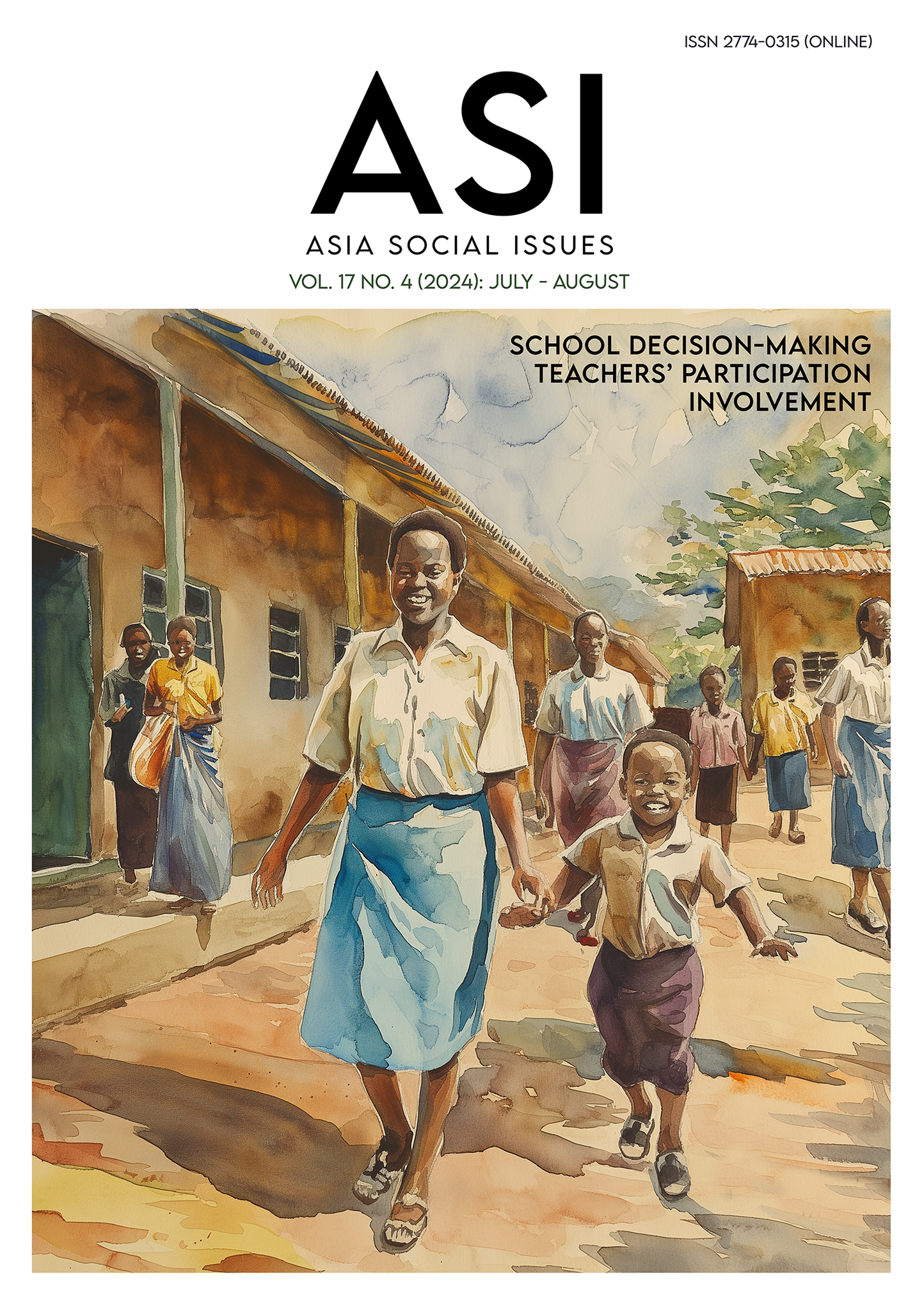Teachers’ Role in School Decision-Making Process: A Case Study of Teachers and School Leaders Perceptions in Rwanda Public Secondary School
Main Article Content
Abstract
The significance of decision-making in educational institutions is widely acknowledged as a pivotal element in school leadership and administration. The school decision-making process involves selecting and determining crucial concerns that benefit the school’s and its constituents’ overall welfare in Rwanda. All secondary public schools in Rwanda’s community are expected to participate actively in this process. This research examines the role and contributions of teachers in the decision-making process and their level of engagement. It also investigates their lived or felt experiences while executing school choices in which they were not involved. A semi-structured interview was conducted with 8 teachers and 2 school principals from 2 public secondary schools in Rwanda. It was concluded that in the context of Rwanda’s school teachers’ extended invitations to engage in the processes and conversations around school decision-making, their actual desire or willingness to participate needs to be higher, suggesting a limited degree of engagement. The promotion of collaboration and collectivism is enhanced among the school community members. It plays a significant part in augmenting instructors’ work happiness and motivation. Nevertheless, instructors argue that following instructions without engaging in decision-making may lead to inflexibility and difficulties. They emphasize the need to integrate teachers’ perspectives into every decision made by school management.
Article Details

This work is licensed under a Creative Commons Attribution-NonCommercial-NoDerivatives 4.0 International License.
Copyright: CC BY-NC-ND 4.0
References
Braun, V., & Clarke, V. (2006) Using thematic analysis in psychology. Qualitative Research in Psychology, 3(2). 77-101.
Cansoy, R., Polatcan, M., & Parlar, H. (2020). Paternalistic school principal behaviors and teachers’ participation in decision making: The intermediary role of teachers’ trust in principals. Research in Educational Administration & Leadership, 5(2), 553-584.
Chaaban, Y., Abu-Tineh, A., Alkhateeb, H., & Romanowski, M. (2022). A Narrative Study Exploring Content and Process Influences on Male Teachers’ Career Development. Leadership and Policy in Schools, 1-16.
Deepa Mehta, AlokG., &Rathore, H.C.S. (2010). Teacher participation in the decision‐making process: reality and repercussions in Indian higher education, Compare: Journal of Comparative and International Education, 40(5), 659-671.
Dincer, O., & Osman, T. (2015). The Effect of School Administrators’ Decision-Making Styles on Teacher Job Satisfaction.Procedia - Social and Behavioral Sciences,197,1936-1946.
Eriş, H., Kayhan, H., Baştaş, M., &Gamar, C. (2017). Teacher and administrative staff views on teachers’participation in decision making process. EURASIA Journal of Mathematics, Science and Technology Education, 13(11), 7411-7420.
Harris, A. (2013). Distributed leadership: Friend or foe? Educational Management Administration & Leadership, 41(5), 545-554.
Harrison, K., &Taysum, A., McNamara, G., & O’Hara, J. (2016). The degree to which students and teachers are involved in second-level school processes and participation in decision-making: An Irish case study. Irish Educational Studies, 35(2), 155-173.
Hulpia, H., Devos, G., & Van Keer, H. (2011). The relation between school leadership from a distributed perspective and teachers’ organizational commitment: Examining the source of the leadership function. Educational Administration Quarterly, 47(5), 728-771.
Louis, K. S., Leithwood, K., Wahlstrom, K. L., & Anderson, S. E. (2010). Investigating the links to improved student learning: Final report of research findings. NY, USA: Wallace Foundation.
Luschei, T. F., & Jeong, D. W. (2023). Organizing schools for improvement: The role of school decision making and authority.
Mokoena, S. P. (2011). Participative Decision Making: Perceptions of School Stakeholders in South Africa. Journal of Social Sciences, 29(2), 119-131.
Panchamukhi, P., (1970). Decision-Making in Education: Some Issues. Economic and Political Weekly, 5(3/5), 219-222.
Pashiardis, P. (1994). Teacher Participation in Decision Making. International Journal of Educational Management, 5(8), 14-17.
Smylie, M. A., & Hart, A. W. (1999). School leadership for teacher learning and change: A human and social capital development perspective. Handbook of research on educational administration, 2, 421-441.
Wadesango, N. (2012). The influence of teacher participation in Decision-Making on student Performance. The Anthropologist, 14(5), 425-431.


